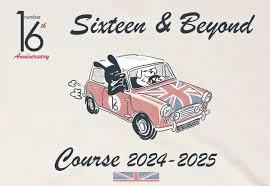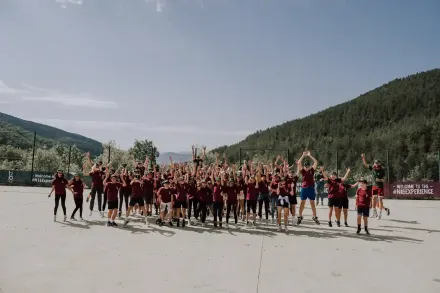- ¿Conoces cuál es la diferencia entre talk y speak? A priori parecen significar lo mismo pero no siempre se usan en la misma situación. ¡Esperamos ayudaros con este post!
 Speak y talk en diferentes contextos
Para empezar, speak es más formal que talk, pero ambos pueden usarse para decirle a otra persona que quieres tener una conversación con ella. Sin embargo, cuando no conoce bien a la otra persona o quiere mostrar un mayor nivel de respeto y cortesía, como en el trabajo y la escuela, debe usar speak. Speak también sugiere que lo que tienes que decir es importante o serio. Por ejemplo, “Can I speak to you after the meeting?”
Por otro lado, si quieres chatear con amigos o familiares, o simplemente estás en un ambiente informal, como en un bar o una fiesta, no importa si conoces bien a la otra persona o no, puedes usa talk. Talk sugiere que desea una conversación más informal sobre un tema poco serio. Por ejemplo, ‘Can I talk to you before class?’
Aquí hay algunos otros ejemplos del uso de speak en contextos formales y talk en contextos informales, para que pueda ver cómo cambia el tono según cuál use.
Speak y talk en diferentes contextos
Para empezar, speak es más formal que talk, pero ambos pueden usarse para decirle a otra persona que quieres tener una conversación con ella. Sin embargo, cuando no conoce bien a la otra persona o quiere mostrar un mayor nivel de respeto y cortesía, como en el trabajo y la escuela, debe usar speak. Speak también sugiere que lo que tienes que decir es importante o serio. Por ejemplo, “Can I speak to you after the meeting?”
Por otro lado, si quieres chatear con amigos o familiares, o simplemente estás en un ambiente informal, como en un bar o una fiesta, no importa si conoces bien a la otra persona o no, puedes usa talk. Talk sugiere que desea una conversación más informal sobre un tema poco serio. Por ejemplo, ‘Can I talk to you before class?’
Aquí hay algunos otros ejemplos del uso de speak en contextos formales y talk en contextos informales, para que pueda ver cómo cambia el tono según cuál use.
- Johnson needs to speak with you in his office.
- You need to go and speak to the principal.
- Your Father wants to speak to you when you get home from school.
- The manager will speak with you in a few minutes.
- After you have filled out all of your information, the police will need to speak with you.
- Can we talk about how cute that boy is in our class!
- The girls are always talking and laughing in class.
- I can’t talk right now, but I’ll catch up with you later.
- Can we talk for a minute about the plan for tonight?
 Speak y talk se pueden usar con la preposición 'to'. Por ejemplo,
Speak y talk se pueden usar con la preposición 'to'. Por ejemplo,
- I need to speak to you.
- Can I talk to you?
- She needs to speak to you.
- She wants to talk to you.
- Can we talk about our relationship?
- Jackson has come to talk to the class about mental health.
- I’m going to talk about Jessica’s behaviour with her.
- Louis is going to speak about the project he is working on in the meeting today.
- Can we talk about how difficult that exam was!?
- My boss needs to speak with me.
- I need to speak with my Dad.
- May I speak with you?
- She must speak with him immediately.
- Monica is speaking.
- Why doesn’t she look at me when she speaks?
- It is important to listen to your teacher when they are speaking to you.
- Kate and Molly are talking at the bar.
- What do you want to talk about?
- I talk on the phone to my best friend for hours everyday.
- I can speak 3 languages.
- Can you speak English?
- I wish I could speak another language.
Consejos para estudiar inglés en el extranjero
Descubre los beneficios y opciones para estudiar inglés en el extranjero, con consejos para elegir programas y prepararte para la experiencia
Ejercicios prácticos para aprender los condicionales en inglés
práctica condicionales ingles
SUMMER EXPERIENCE - CHECKLIST
Revisa el Checklist para la Summer Experience 2024 de Number 16




